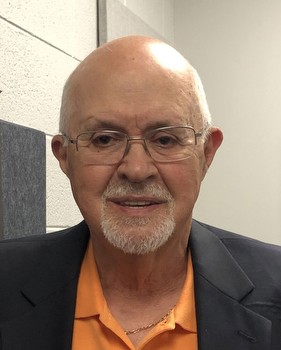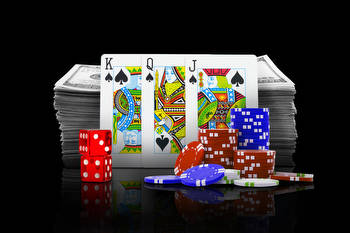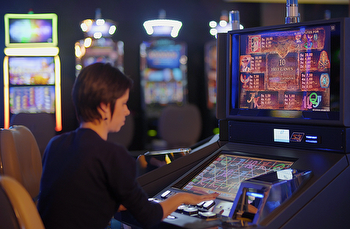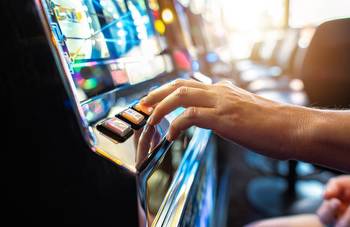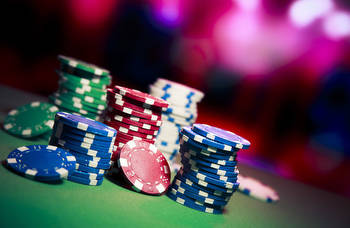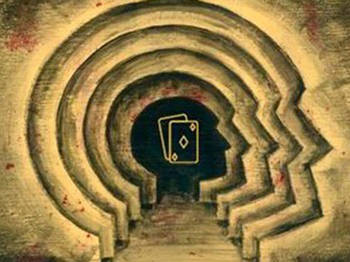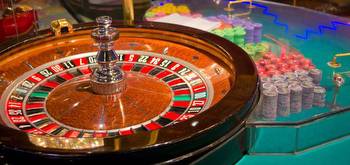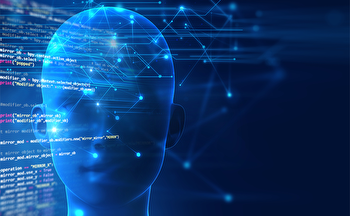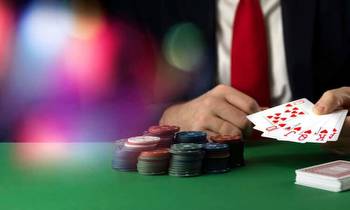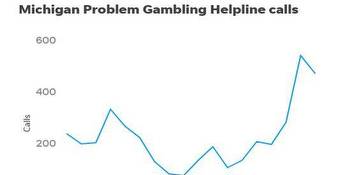Online Gambling, Gaming Addiction Has Increased During COVID-19

If you’ve recently experienced serious withdrawal when not playing video games or gambling online, you could be living in lockdown with a serious addiction.
While addiction is most commonly associated with substances like alcohol, certain human behaviors can be addictive, too.
Internet gaming disorder or gambling disorder are what’s called process addictions. And with so many people stuck in their homes right now, these struggles are amplified.
“People are isolated by themselves at home,” said Dr. Scott Teitelbaum, a professor in psychiatry and neuroscience at the University of Florida’s College of Medicine and medical director of the UF Health Florida Recovery Center.
He added he’s seeing more people for these types of addictions.
“Life is hard, and people are always looking for something to soothe themselves, and some people get pathologic attachment,” Teitelbaum told Healthline.
John Gillen, director of Cassiobury Court, a drug and alcohol rehab center in the United Kingdom, told Healthline that he’s seen a rise in these addictions the past few years, and the pandemic has only exacerbated them.
“Because of the COVID situation, we’re opening a new residential treatment center because the demand is becoming that high,” Gillen said.
“In the three centers, I would say that we have two from each center who have come to us as a result of active, chronic gaming, whether it would be gaming or other forms of internet misuse, shall we say,” he said. “These are all people under the age of 28. I would say that’s definitely going to increase come early next summer.”
Healthline asked several experts to explain addictions to activities such as video games, online gambling, and day trading, as well as how to identify if you have a problem and how to get help.
Process addictions are behaviors that activate the brain’s reward center in the way that certain substances do, explained Dr. Lawrence Weinstein, the chief medical officer at American Addiction Centers in St. Petersburg, Florida.
“Taking part in this particular behavior will increase the level of dopamine in the brain, and the pleasure obtained from this behavior reinforces that the person will engage in the behavior again in the future,” he told Healthline. “Disorders involving feeding, eating, shopping, and exercising are all examples of process addictions.”
When lockdowns and shutdowns were the new reality in April, the National Council on Problem Gambling warned that people with gambling problems may be affected more severely by the pandemic due to increased individual health risks, shifting gambling preferences, and cuts in funding for services.
Weinstein told Healthline that an increase in process disorders like online gaming and gambling is due to the many mental health consequences of the pandemic.
“In both instances, social isolation as a result of social distancing, financial and economic worries, difficulties with employment, and other stressors may cause people to initiate online gaming/gambling as a stress reliever or exacerbate existing problematic behavior,” he explained.
“The circumstances of being housebound with a limited amount of activities available are almost ripe for online gaming because of the ability to maintain enjoyable and social communication,” Weinstein said.
“Online gaming was even encouraged in the early stages of the pandemic with a joint campaign between the World Health Organization and the video game industry,” he said.
The uncertainty of these financially difficult times can be a driving factor in an increase of online gambling, Weinstein added.
“Stress is a trigger,” Teitelbaum said. “As a rule, any of these things — substance abuse disorders, gambling online, gaming — they become issues of isolation anyhow. I’ve seen the pandemic be a trigger for a spiraling down.”
Teitelbaum has treated people who have an addiction to day trading — an activity that’s been dubbed a pastime for many during the pandemic — and says that it’s just another form of gambling.
“It’s the action,” he said. “You need the money to do it. But it’s the action, the anticipation of the action, that’s what you become addicted to.”
Teitelbaum noted that these disorders are challenging to identify because they’re harder to monitor.
“It’s harder to keep people away. It’s kind of like compulsive overeating. You can’t tell people not to eat,” he explained. “You’re telling people not to be on the internet.”
While the pandemic makes it more difficult for people to socialize, other modes of interacting can enter the picture.
“With the amount of decreased social interaction that we have due to COVID, people are looking for more ways to interact and also get positive reinforcement for the social interaction they are able to do,” said Dr. Denis Godwin Antoine II, the director of the motivated behaviors unit at Johns Hopkins Hospital in Maryland and an assistant professor of psychiatry and behavioral sciences. “I think that there’s an opportunity for online gaming to increase that social interaction.”
These disorders may be harder to notice right now simply because we aren’t living life as we did before.
“I think it’s become harder to identify when it is a problem because any type of social disorder is defined by an impairment in social function,” Antoine told Healthline.
The best approach, he said, is to look at the big picture in terms of what’s going on at home and on the job, as well as other responsibilities to make sure that those roles are being met adequately.
Examine regular activities of daily life, such as eating and sleeping, to see whether any of those behaviors have gone in a bad direction.
“Just by asking a person how frequently they’re playing a game or trading stocks wouldn’t give the most accurate picture as to how it impacts their social environment,” Antoine explained.
The new edition of the Diagnostic and Statistical Manual of Mental Health Disorders (DSM-5), which is the handbook for mental health professionals, includes diagnostic criteria for both internet gaming disorder and gambling disorder, Weinstein noted.
A preoccupation or obsession with internet games, withdrawal when not playing them, and loss of interest in other life activities are on the list of diagnostics for internet gaming disorder, which is in the section for conditions that warrant further research.
The need to gamble with increasing amounts of money to achieve the desired excitement, irritability when trying to cut down or stop gambling, and repeated unsuccessful efforts to control gambling are among the list of criteria for gambling disorder.
Weinstein said a doctor would diagnose a process addiction after they identify a certain number of specific symptoms.
“Based on the number of symptoms met, the mental health professional can then determine the severity of the disorder,” he said.
Antoine said that in his experience, people struggling with online gaming and gambling don’t typically deal with that issue alone.
“They have other issues that come into the picture, such as low social support from family and friends or very high psychosocial stressors, and they’re looking for an outlet that is easy to access,” he said. “That’s usually where the gambling and the gaming problems come in.”
Teitelbaum agreed that a process disorder could be tied to other issues.
“You need to look at the whole person, everything, not just the existence of co-occurring disorders, but trauma, you have to look at the whole picture,” he said. “Many of these disorders don’t stand alone.”
Antoine suggested connecting with a mental health professional, such as a psychiatrist or therapist, who is trained to identify the DSM-5 criteria for diagnosis.
Telehealth has been a helpful path for diagnosis during the pandemic.
“There has actually been an increase in telehealth utilization, and a lot of these disorders can be at least diagnosed with a history of what has been happening in a person’s life,” Antoine said. “Some people are more comfortable with telehealth than they are in person. So, for some individuals, it may be a better option.”
There are no known medications approved by the Food and Drug Administration to treat these disorders, but there are therapies for commonly co-occurring mental health issues like depression or bipolar disorder.
“I have treated patients in the past with untreated bipolar disorder who are very driven to spend money and gamble, and that comes up very often,” Antoine said. “But in terms of for specifically pathological gambling, there are no approved medications at this time.”
Weinstein said that treatment for process addiction commonly comes in the form of cognitive behavioral therapy (CBT).
“CBT is a problem-focused form of psychotherapy in which the patient and therapist actively work together to identify and change patterns of thinking or behavior that may lead to self-destructive actions,” he said. “Through CBT, patients identify risky or triggering situations and learn coping skills that can then be utilized to prevent a relapse.”
Teitelbaum supports a well-rounded approach.
“You want to look [at], do they have a co-occurring mental health disorder that they need pharmacologic treatment for? Once again, you go case by case. You really want to know your patient,” he said.
“I’ve always said good treatment isn’t this or that — it’s this plus that,” Teitelbaum explained. “You have to look at your individual patient and figure out, ‘OK, what’s the neurobiology? What do I need to do pharmacologically? And how else can I help?’”
There’s no one magic bullet, according to Teitelbaum.
“I think good treatment is always a combination of appropriate integrated pharmacotherapy, group therapy, individual therapy, and family therapy,” he said. “Looking for other things that they find peace and joy doing.”







